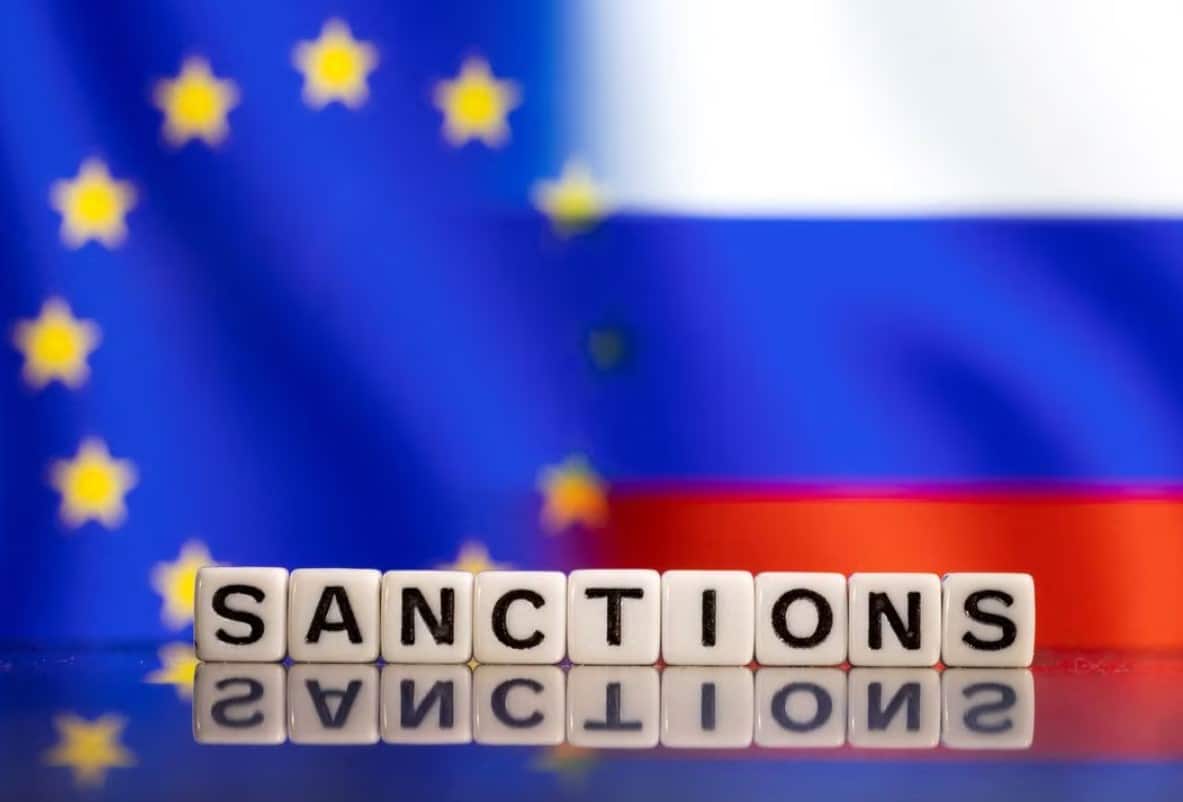The European Union has imposed new sanctions on nine individuals and six entities for their involvement in destabilising actions linked to Russia, including campaigns of foreign information manipulation and interference.
The decision, announced this week by the Council of the European Union, is part of the EU’s ongoing response to hybrid threats targeting both the bloc and Ukraine.
The council said these actions were aimed at undermining democracy, spreading disinformation and disrupting security within EU borders.
The sanctions list includes the Federal State-owned Enterprise Russian Television and Radio Broadcasting Network, also known as RTRS, along with its general director and a senior official responsible for coordinating communications infrastructure development in newly occupied territories.
The council explained that RTRS, operating under the direction of the relevant Russian ministry, has played a central role in replacing existing Ukrainian broadcasting systems in Russian-occupied areas.
“RTRS transmits content approved by the Russian Government with the aim of suppressing dissent, aligning the local population with Russian policies and delegitimising Ukraine’s governance in the occupied territories,” the council stated.
The EU also sanctioned the 841st Separate Electronic Warfare Centre and two of its senior staff overseeing operations in the Kaliningrad region.
Electronic warfare activities originating from Kaliningrad have been linked to GNSS signal disruptions across several European countries, particularly jamming and spoofing signals in the Baltic States.
The council stated that these activities have disrupted civil aviation and raised growing concerns about Russia’s ability to undermine infrastructure through non-conventional means.
The council further listed the BRICS Journalists Association, the Foundation to Battle Injustice, and the Centre for Geopolitical Expertise.
The BRICS Journalists Association and the Foundation to Battle Injustice were reportedly established by the late Yevgeny Prigozhin and have conducted multiple disinformation campaigns targeting France and Ukraine.
One such campaign, the council said, falsely accused French soldiers of abducting children in Niger following the military coup d’état in 2023.
The Centre for Geopolitical Expertise, founded by Aleksandr Dugin, was also sanctioned for orchestrating disinformation operations aimed at damaging Ukrainian interests and discrediting Western political leaders.
According to the council, CGE has been involved in attempts to influence electoral processes in Western democracies.
The council also announced that it “listing a GRU officer, various propagandists, and Yevgeny Shevchenko and his web-company Tigerweb”.
It explained that “the latter disseminated pro-Russian content targeting several Western countries, including France”.
In a related move, the council recently imposed sanctions on Nathalie Yamb, a social media figure known for her vocal support of the Russian Federation.
“Nathalie Yamb has adopted Moscow’s language targeting the West and France in particular with a view to ousting them from the African continent,” the council said.
It added that Yamb maintains links to AFRIC, an organisation with ties to Russian private military companies, and has been instrumental in promoting information manipulation in support of the Russian state.
“Altogether, EU restrictive measures in view of Russia’s destabilising activities now apply to 47 individuals and 15 entities,” the council stated.
“Those designated are subject to an asset freeze and the provision of funds or economic resources, directly or indirectly, to them or for their benefit, is prohibited. In addition, natural persons will also be subject to a travel ban, which will prevent them from entering or transiting through EU territories,” it added.
Finally, the announcement mentioned that the legal acts formalising these measures have been published in the official journal of the EU.






Click here to change your cookie preferences